The story of the garden in the village of Solnik
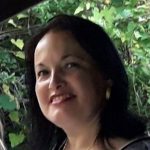
Atanasova
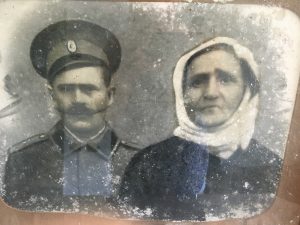
Simo Stoev was born in 1870 and his wife Gergina Doycheva was born in 1878 in a village of Golitsa. Simo’s parents had a water mill in a village of Golitsa. Gergina’s father was a priest in the village. He built up both a church and a room next to it. The room was turned into a school where he taught the local children. Simo and Gergina were neighbours and liked each other at early age. When they grew up their parents allowed them to have a family of their own. After the wedding Simo and Gergina moved to the village Pchelnik, situated in the Kamchia Valley. The first railway line was constructed there and land was luxuriant.
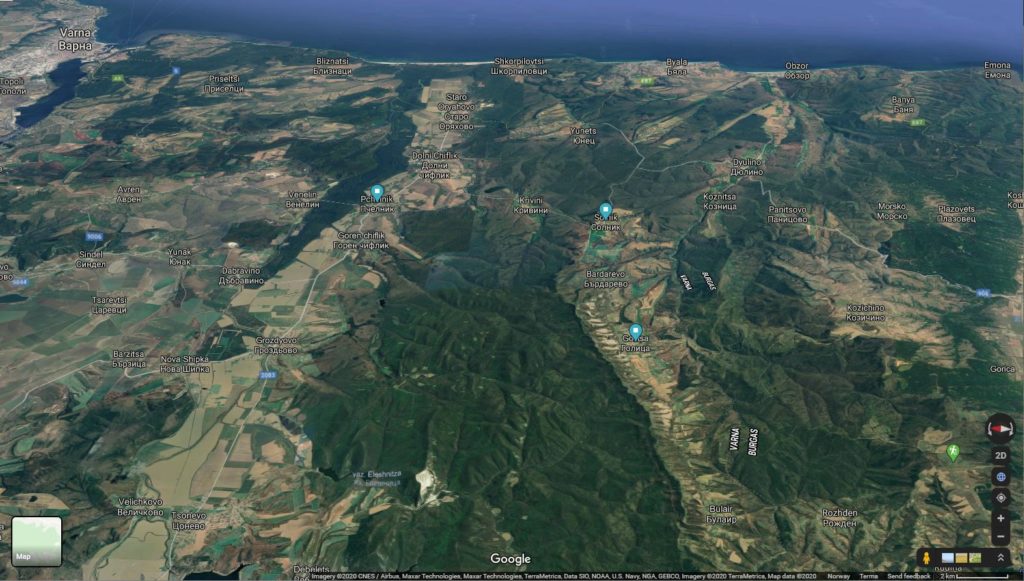
The fathers of Simo and Gergina built a new house for them, they also bought for the young a plenty of lands, cattle, studs of sheep and goats, a bee-garden, eight decars of vineyards with American sorts of grapes. During the next few years Simo and Gergina enlarged their family with six children- four girls and two boys (one of the boys is my dear grandfather Ivan whose name I’m named after – Vanya).
Simo’s greatest wish was to have his own mill with engine. He started to dig a well in a village of Pchelnik in order to look for underground river. Simo didn’t manage to find any water and at last the well pulled down.
Simo and his wife were very religious and believed that everything happened by the will of God.
At that time Simo’s brother who lived in a village of Solnik invited him to see the countryside, called “ Merite” because there was a lot of water. Simo went to the village of Solnik, saw the picturesque place, the running river and decided to build the mill up there. Simo bought a plot of land in “Merite”, including the source of the river.


In 1920 Simo Stoev built that room where he lived on his own while he was building a new house for all his family. The mill and the cattle-shed were built also at the same time. Later the cattle–shed was turned into a wine-cellar.
In 1924, the new house was ready; behind it was situated the mill with engine next to the wells.
Simo sold his house and fields in a village of Pchelnik and all his family together with the livestock moved to the new house in the new place.
Near the house was built a textile factory for processing of sheep and goats wool. In 1934 the new house and the mill were legalized.
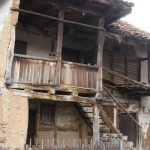
1956-When the city of Varna called Stalingrad, new layouts were made.
On the scheme can be seen the residential building and the mill.
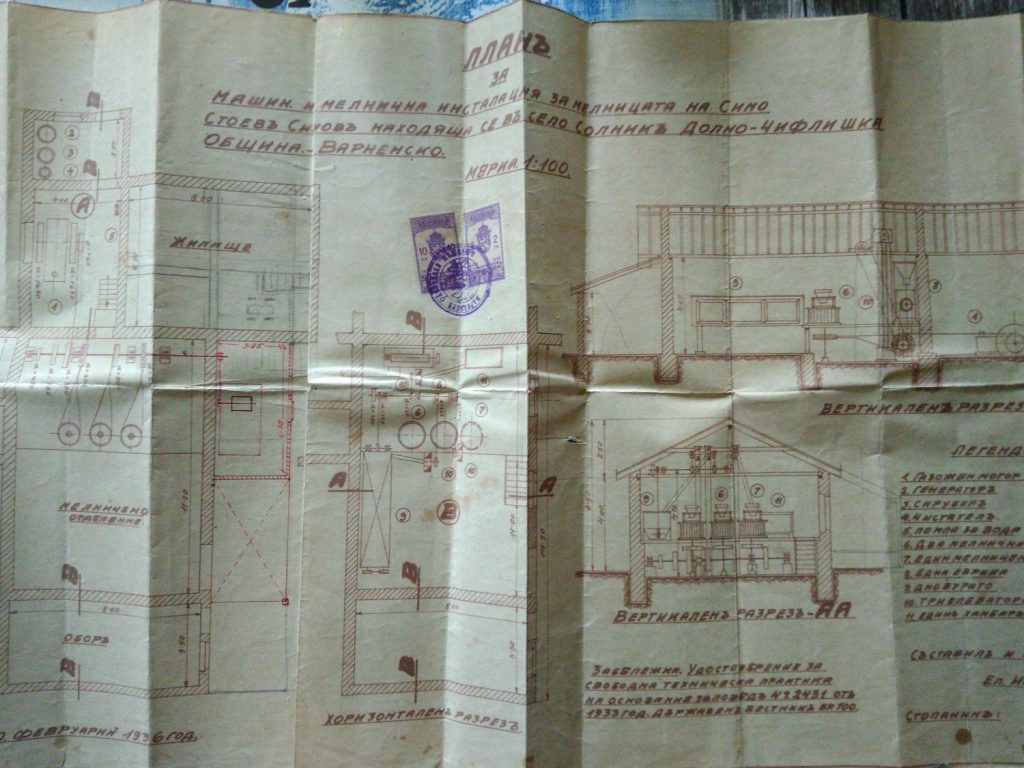
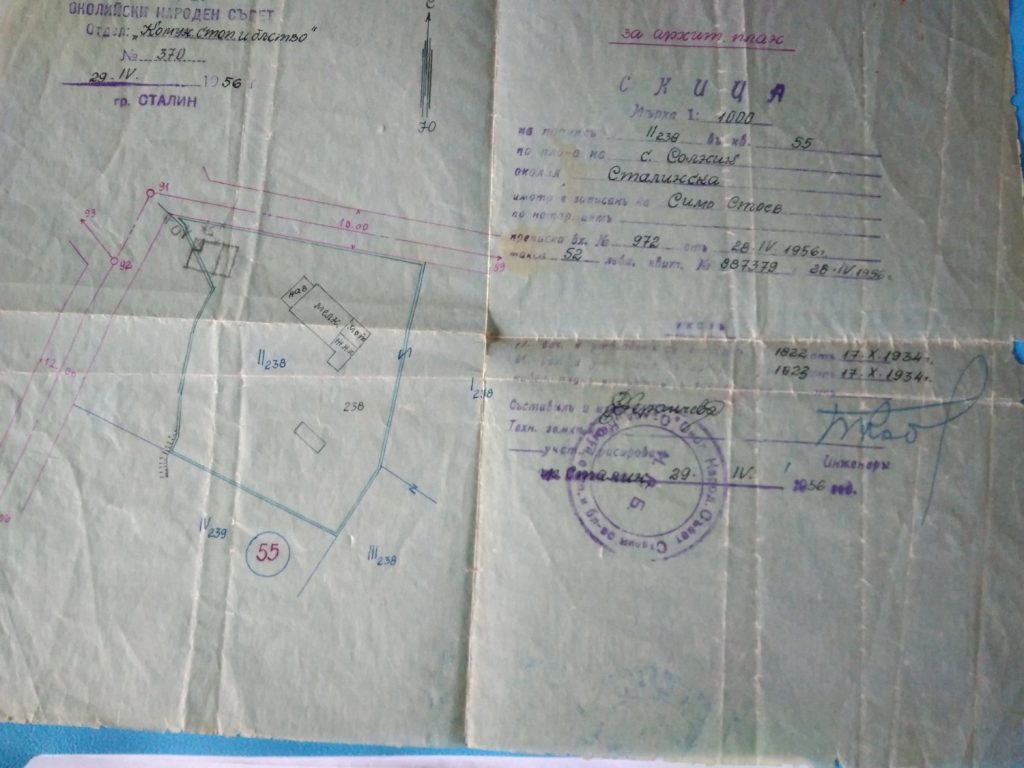
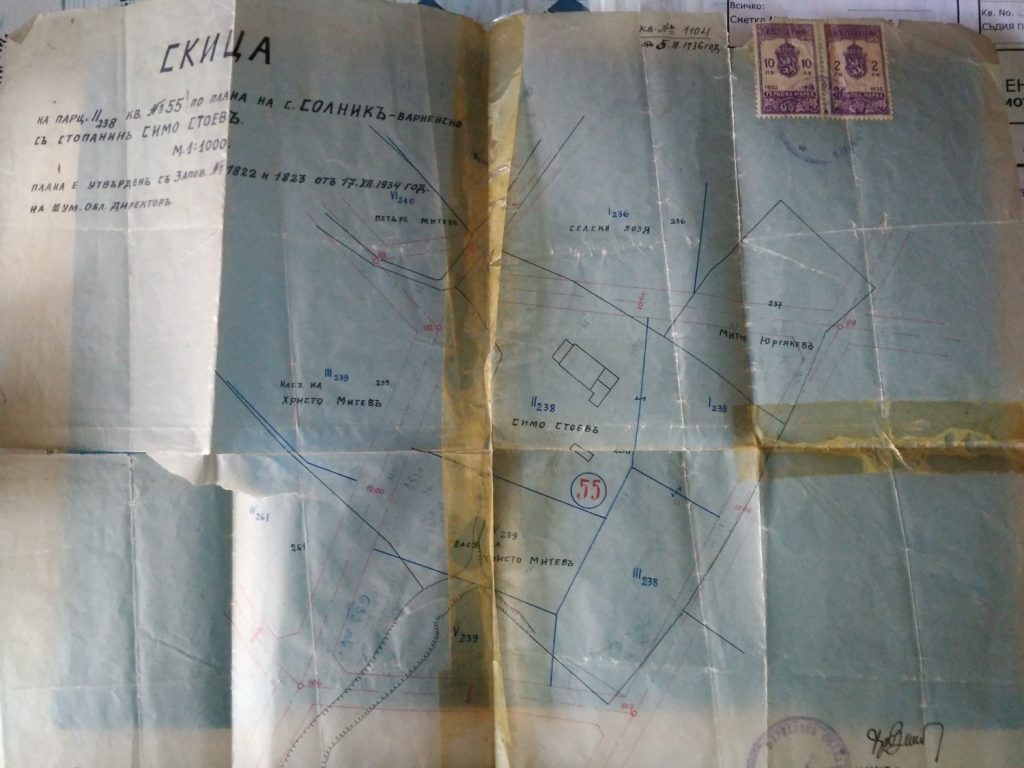
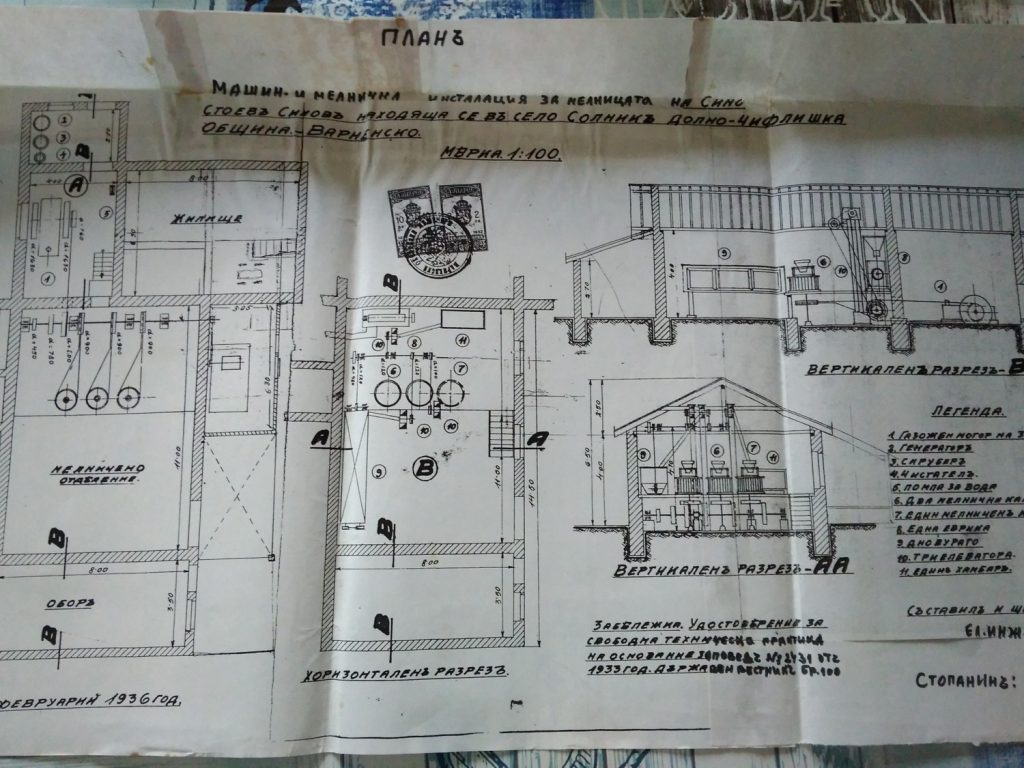
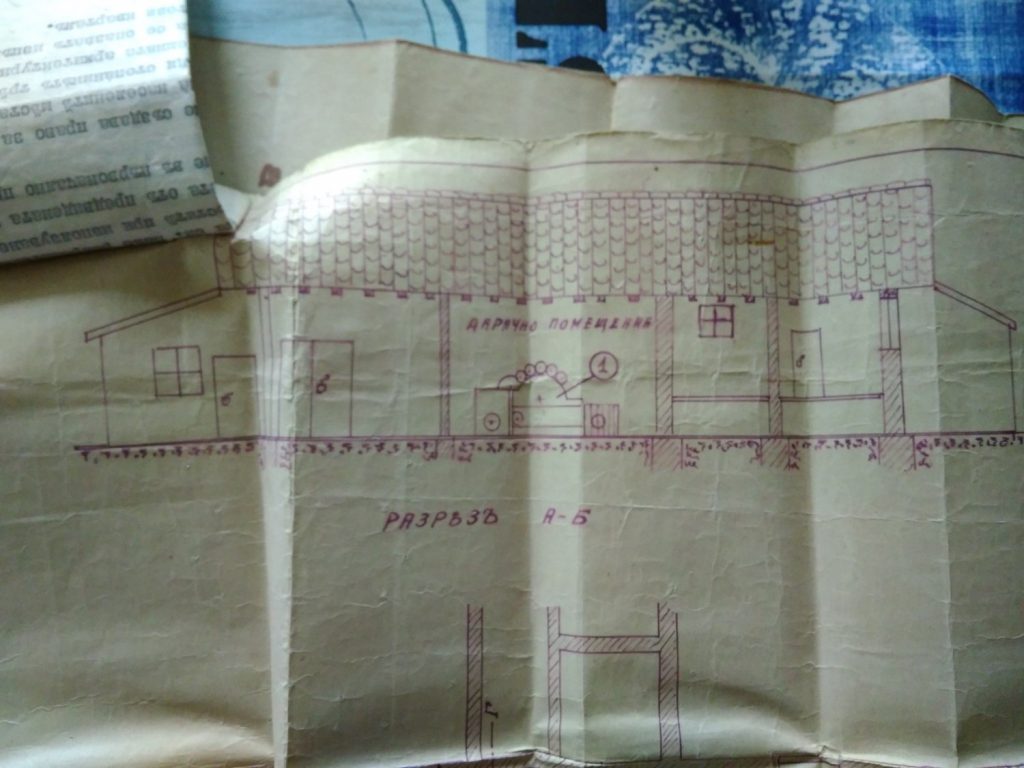
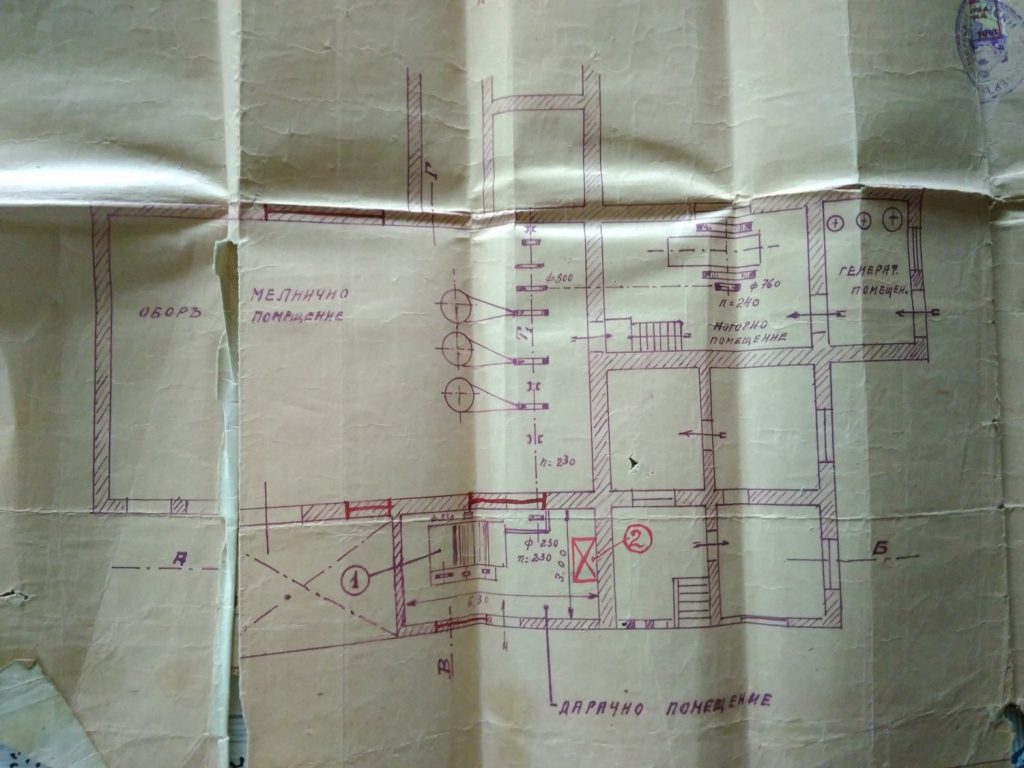
1934-The motor mill began to work with charcoal and the family mended its fortune. Plenty of people from the region (from the villages of Byala and Obzor) came here to mill wheat; women also brought wool for the textile factory. Both the mill and the factory worked nonstop. Those who had no money to pay, paid in kind (fish, honey, flour and so on).
Stancho was a cousin of my great-grandfather Simo and lived in his house. Stancho was a great mechanic and repaired both the engine and the machines when they were out of order. When the family came to wealth, Simo bought for himself a shotgun and became a hunter.
He could play the shepherd’s pipe and the bagpipe.
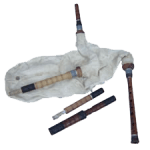
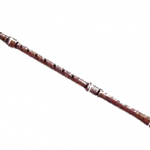
Simo grew studs of lots of sheep and goats, herds of horses and buffaloes.
My great-grandfather managed to buy nearly all the side of “Merite”, ten decares of vineyards with American sorts of grapes, a hundred twenty decares of fields near the villages of Bardarevo and Golitsa. He made a big apiary with spacious orchards around.
My grandfather Ivan at the age of seven grazed five hundred wild pigs in the wood.
Simo and Gergina were hardworking and kind people; they were loved by everybody from the village. Both of them helped the poor and large families with flour, honey ,meat. Simo Stoyev was a man of modern times; he was interested in technics. The engine of the mill produced electricity and lighted the house and the garden. Simo was the first man in the village that bought a radio set and gramophone; his countrymen came and sat in the garden to listen to news or music.
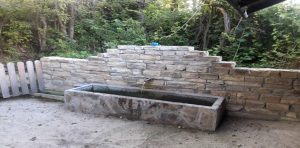
In 1947 Simo Stoyev built the fountain and people from the village had a benefit of his generous gesture. Nowadays, thanks to the Mayor of Solnik the fountain is renewed with a shed and barbecue.
When Simo and Gergina got older, they shared their money and properties among their four children. Their son Ivan Simov (my grandfather) married Stoyanka Georgieva (my grandmother). Ivan and Stoyanka cared of the old Simo and Gergina until their death.
My grandfather Ivan inherited the mill, the factory and the garden that was bigger than ten decares, fields and vineyards. His brother inherited the other part of the property, including money and land.
My grandfather worked hard in the mill and in the fields. My mother Ginka Ivanova Simova was born in 1942. She was named after her grandma Gergina who looked after her in a lovely way. A bit later came the other three children- Simo, Stoyanka and Violeta. Total four children (three girls and a boy).
9.09.1944- Bulgaria was ruled by communists. Private property (land, studs, fields and machines) was expropriated in the state favour. The factory was destroyed; Everything was in ruin. There were created labour -cooperation farms and agriculture -industrial complexes.
During the period 1990-2000 we managed to restore our rights over the part of the arable lands.
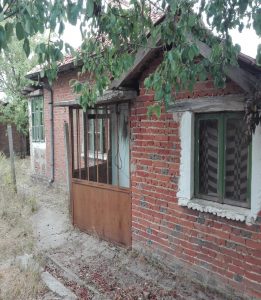
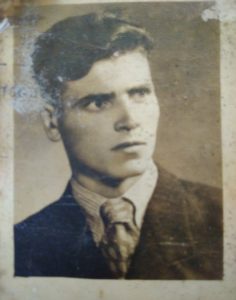
/my grandfather Ivan
1958- My grandparents Ivan and Stoyanka built up a new house in the garden for their four children and two farm buildings.
In 1941-1949 it was the most difficult period for the family.
A Partisan movement appeared all over Bulgaria, calling themselves ,,Figters against fascism’’. In the forest of Solnik there was a formed group of partisans. One of the partisans in the group was my uncle Dimitar, who married my grandfather’s sister.
All day, my grandfather Ivan worked in the mill and in the evening he loaded lots of flour and food on his horses and carried them to the mountains where were the partisans.
In 1946 the new Communist authorities declated Ivan Stoev for fascist and enemy of the people because he owned a mill and many fields.
They declared a death sentence with shooting in the middle of town Solnik. The whole day my grandmother and my mother (when she was a child) were crying and praying to release him.
Shortly before the death sentence was executed, uncle Dimitar arrived and saved him, telling how my grandfather had fed and helped the partisan group. But however they declare him as a “fascist” , he was obliged to pay the highest taxes and give the bigger part of the harvest.
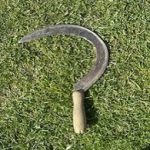
There were heavy and very difficult years for the family. They were feeding themselves from agriculture, livestock and production of wine, brandy and honey. There wasn’t any machines, neither agriculture machinery. The wheat was planted by hand and reaped by sickle.
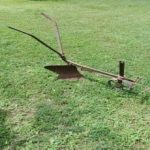
The gardens and fields were plowed by horses and plows.
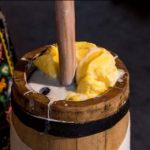
They produced everything themselves. Cheese, milk, meat, butter. The milk was beaten in a special container, until the butter comes out. In the grandfather’s barrels, the wine was never spoiled and it stood for years. In July, along with the barrels craftsman, they went with the horses on the southern slope of the mountain and chose the tree, whose branches were the first to shine on the sun and made the best barrels out of it.
With a lot of hard work Ivan and Stoyanka, managed to study out their 4 children.
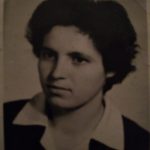
Ginka Ivanova Simova
/my mother/
She lived in town Dolni Chiflik and worked as an accountant at APK of town Dolni Chiflik. She is married. Now she’s a pensioner and lives in village Pchelnik.
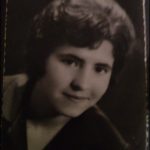
Stoika Ivanova Markova
She lived in the town Gorna Oryahovitsa. She worked in Bulgarian post and telecommunications. She is married and has two children.
She died on 28.06.2017.
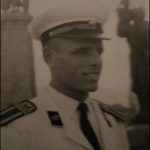
Simov
Simo Ivanon Simov
Lived in town Varna. Worked in Locomotive depot – town Varna, as a instructor. He was married and had two kids.
He died on 22.12.2017.
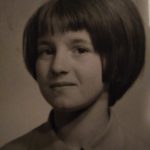
Zhekova
Violeta Ivanova Zhekova
Lives in the town Dolni Chiflik. Works in social patronage for elderly people. She is married and has two children.
MY MEMORIES:
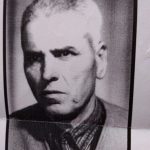
83 year
My grandfather Ivan to whom I bear the name, for me he was all. Since I lost my father early, he was my father, brother, friend and teacher.
My whole childhood passed into this garden, under the care of my grandfather and grandmother, I was looking forward to the school’s holidays and went to the village of Solnik.
The entire courtyard from the cellar to the wells was full of animals – horses, sheeps, goats, cows, pigs, chickens, ducks, geese, turkeys etc.
But my grandfather loved the horses the most. He couldn’t breathe without them. He always said “I was born on a horse, I will die on a horse.”. The horses always followed him like puppies and listened to him. *When he said “Lay” – they layed, “Harness” – they stood in front of the wagon without moving and waited for their reins. They were always receiving lumps of sugar for a prize, that my grandfather carried in his pocket.
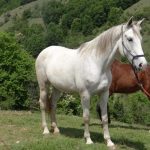
My favorite was the white mare with the brown foal. I patted her twice on her neck, she bended her front legs and bent her head, then I climbed on the saddle on which my grandfather always attached me.
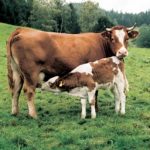
My grandfather in his life didn’t hit any of the animals on the yard. He always patted them, fed and healed them with ointments made by him. Round the clock he was on duty when horses, lambs and pigs were born. I once attended to the birth of 2 lambs and their mother died.
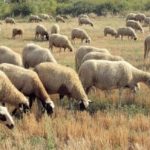
I was crying for them unsteadily that they were left without a mother. Then grandfather grabbed my hand and said “Come to find them new mothers!”.
We took one of the lambs, brought it to another sheep, which fed her own lamb, and rubbed it in her tail so it can smell like the mother sheep. Then the sheep accepted the lamb like her own. We did the same thing with the other lamb.
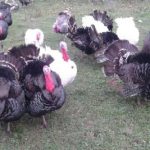
The next day the lambs were running around happy and were fed by their new mothers. I was happy and my grandfather was my hero. He always told me “If you want the animals to listen you and know that you are their owner, they must remember your smell and you have to give them everyday your love and care”.
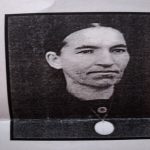
/My grandmother/
My grandmother, very kind and industrious woman. She taught me to make bread and cook delicious foods. They really loved each other and never argued. Their love was in the air and understand each other with a look.
She weaved rugs, carpets and wool. When she was a little girl she was afraid of doctors, because her brother got sick and they called a doctor that gave him an injection after which her brother died. From then she didn’t wanted to see doctors and never took medicament’s. We along got a basket, in which we gathered herbs in the Garden and in the field. She drinked a lot of herbs and showered with them.
My grandmother was very beautiful, she had a long hair to the waist, she didn’t had any wrinkles and did not got ill. With herbs, lard and rakia (brendy) she healed – us, the animals and the whole village.
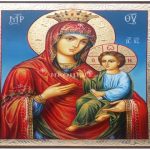
Grandfather and Grandmother believed in God, they both were raised in religious families. Upstairs in the house my grandmother had a wood-carved icon ostasis with Saint Mary, on which always lit the candle and prayed.
Granny always told me parables about God and taught me to worship him. She was telling: How God for one day, created the human out of mud.
In the evening he lay down to rest, but the Devil appeared and deformed the human figure. When God wake up and saw what the Devil did, he gathered grass (herbs) and repaired the human figure. After giving him life, God said: “You came out from ground and with herbs you will heal yourself.”
My favorite place was the spring of the river with the lake in the garden, full with small lake turtles, which I played with. The lake turtles were very beautiful, they had green and yellow stripes on the skin.


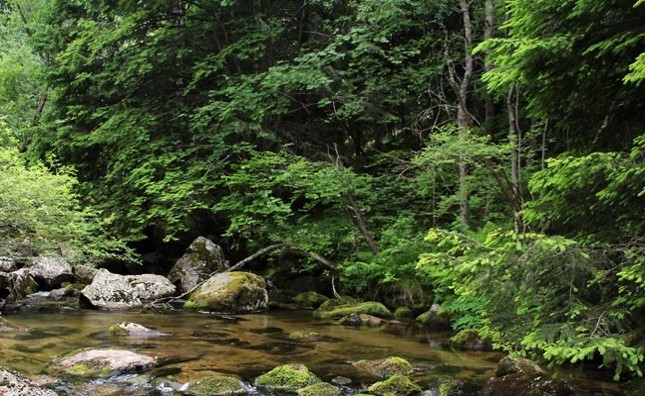
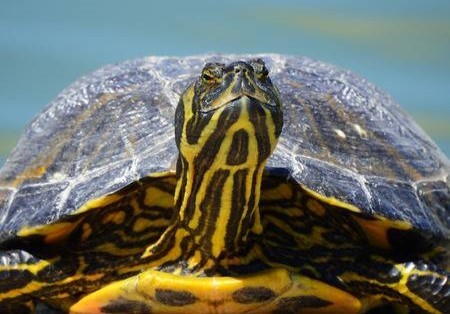
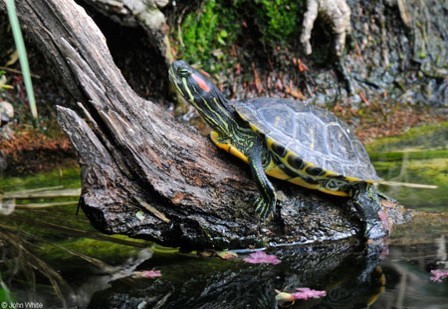
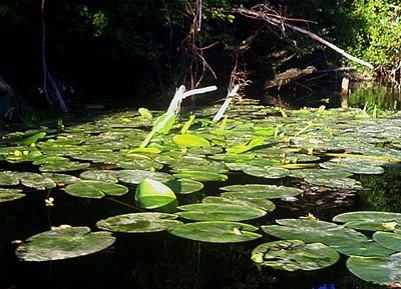
With the kids from the village and my cousins we ran down the river to the small dam overgrown with reed and bulrush. My grandmother’s ducks swam in it, the women of the village were washing wool and we played in the water all day.

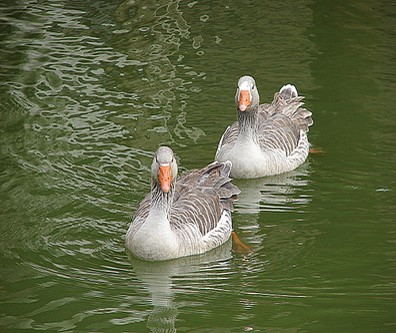
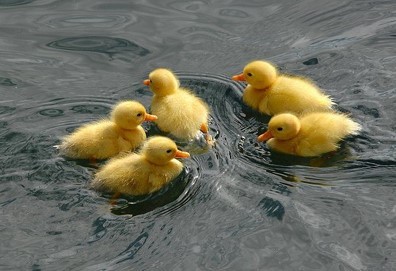
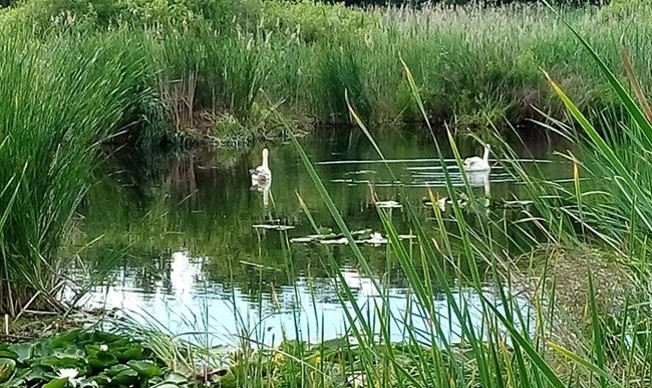

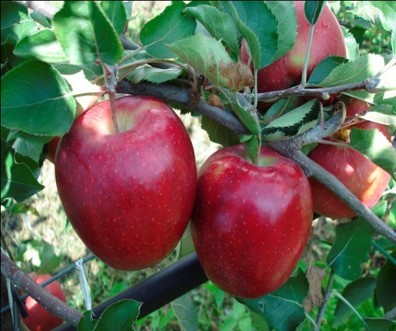
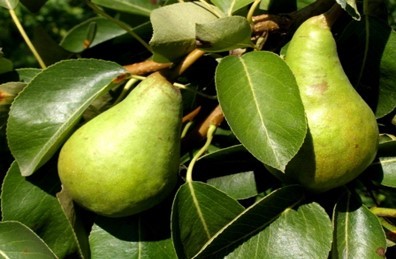
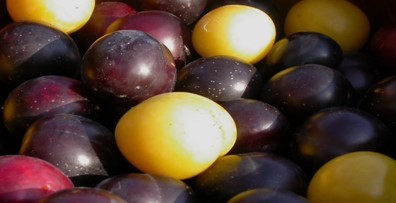
The Garden around the house blossomed beneath grandmother’s and grandfather’s hands. In it there were all sorts of apples, pears, plums from Kyustendil and damsons, walnuts, figs, sour cherries, raspberries, blackberries, peaches and cherries. They cultivated all kinds of vegetables and grapes. My grandfather used only manure to enhance soil fertility. He didn’t used any chemical detergents, only biological protection. They taught me how and when to plant vegetables and how to take care of them. The garden was full with tomatoes, cucumbers, potatoes, carrots, cabbage, onions,garlic, white and green beans, watermelons, cantaloupe and etc.
The best day of the year was the feast of the village, a village council was organized, which is still celebrated today – 02.August. Day of Elijah the prophet and the church which bears his name, keeper of the harvest from thunder and hails, kept alive and healthy men to return from the wars. In order not to upset Elijah, no one works this day. We all dress up new clothes, put tables out under the pear tree, whole lambs bake in the ovens.
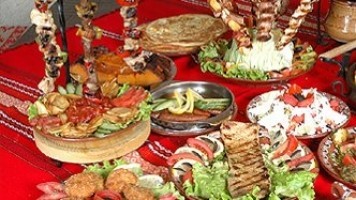
At lunch, all relatives and friends gather together. My grandfather was getting his 20-year-old wines, fruit and grape rakija. The tables were covered with all the fruits and vegetables from the garden, meat ”Kurban” was made in honor of Saint Elijah and cut pork fillets. And for the kids grandfather was getting bannock with honey.
Then people start to celebrate with folk dances until late in the evening. The cousin of my grandfather was singing folk songs and her husband was playing the bagpipe. At the evening, tired from the joy, men told stories and tribulations from the barracks, as soldiers. My grandfather boasted, that in young years with horses he stole women for marriages in other villages.
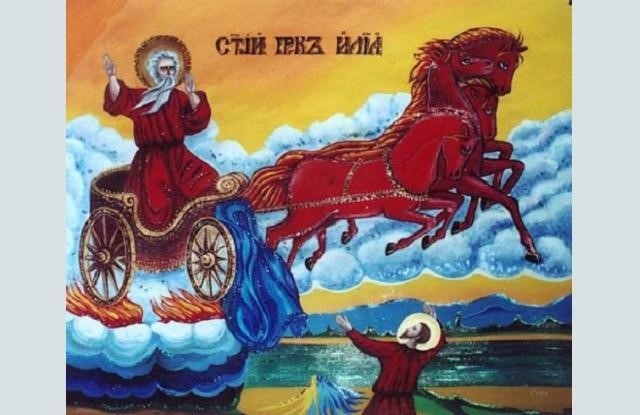
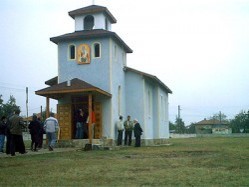
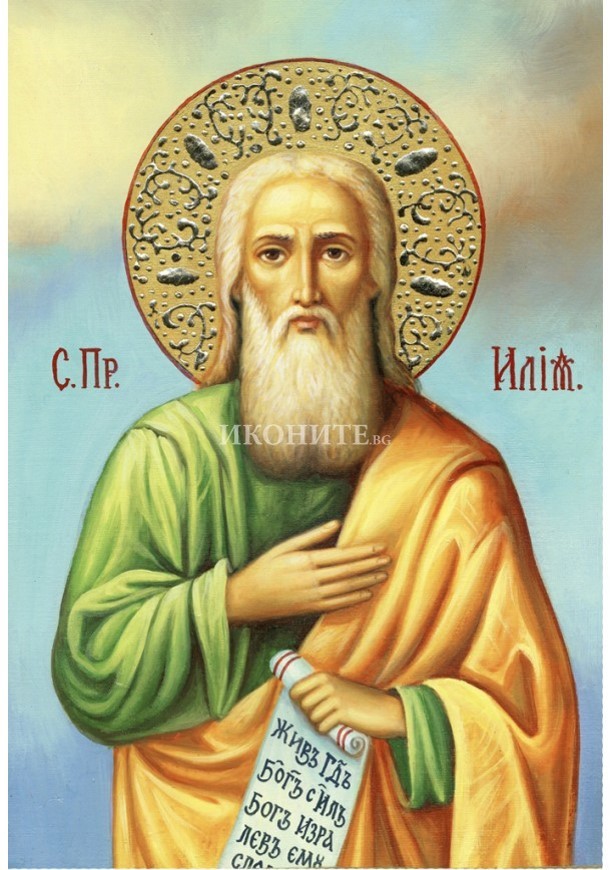
Other very important holidays for the village are:
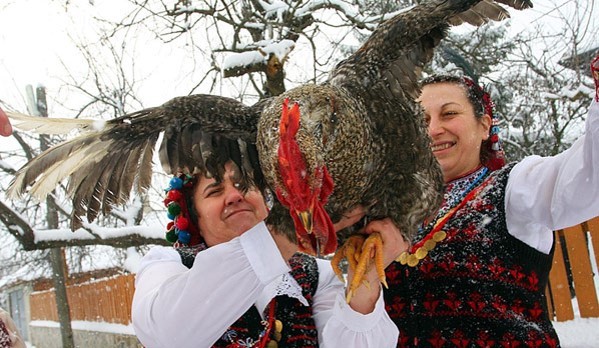
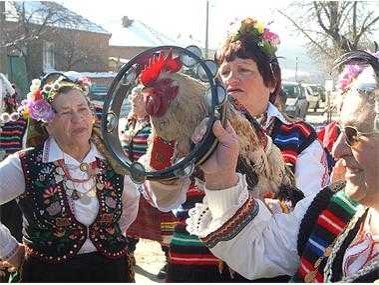
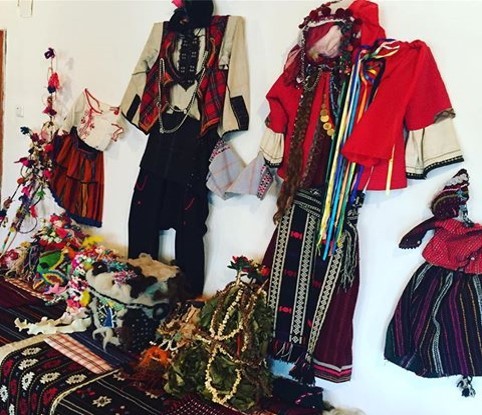
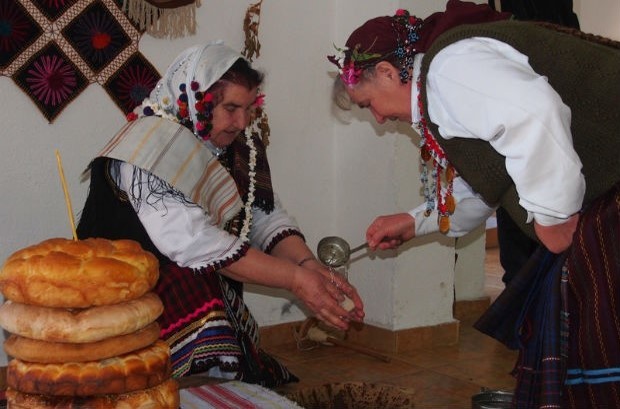
02. February –Rooster day – day of the male child. On that day they slaughter a rooster.
21. January – Grandmother day – day of the grandmother midwife who has helped with the born of child’s of the women in the village, in past times.
According to the Bulgarian Orthodox Church “Every person, who dies on a holy festival is a Saint.”.
My Grandmother died on Dimitrovden- 07.11.1996 *My Grandfather Ivan died on Easter – 29.04.2000.
The last words of my grandfather were for the garden. He said: “When I close my eyes, this place will become a waste land.”. So it was.
First, many fruit trees disappeared, the vineyard withered. The source of the river ceased and it’s overwhelmed by withered branches and fallen leaves. My favorite lake disappeared, now it’s overgrown with shrubs. The small dam resembles a cemetery with dry reeds. There has been a sad silence and ruin, that tears your soul to pain. My eyes are filled with tears, because my memories are alive.
I hope and belive, that Roar and Jorunn will be able to restore the beauty of the valley and the garden will again flourish. So my grandfather, at last, can smile from the sky.
THE END
